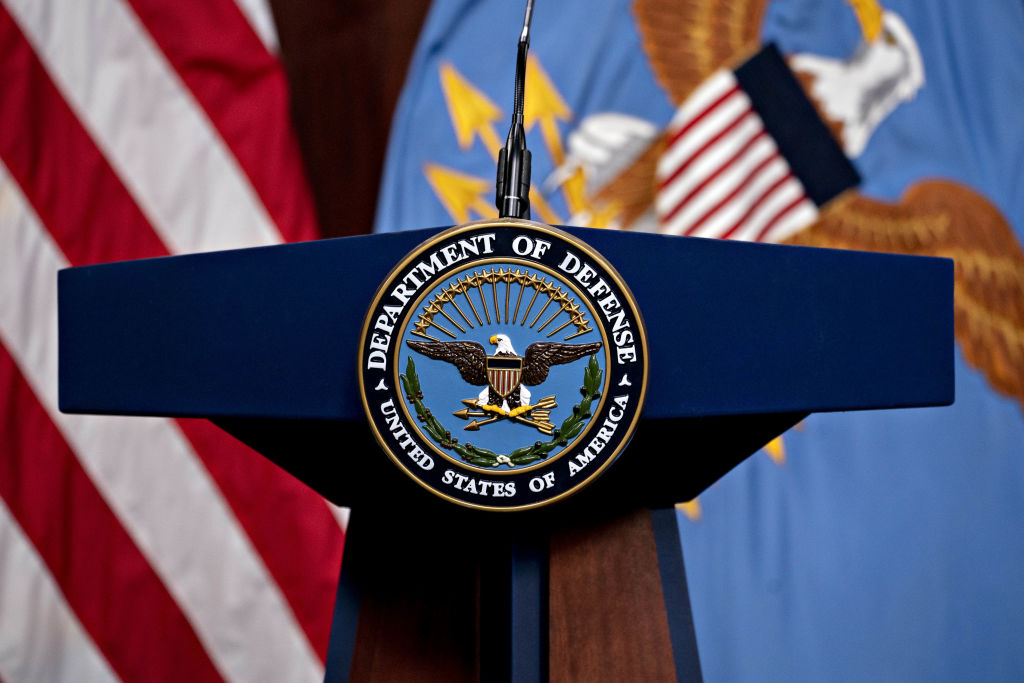Defense Department Awards Millions in STEM Grants to Colleges
 Credit: Bloomberg / Contributor / Bloomberg / Getty Images
Credit: Bloomberg / Contributor / Bloomberg / Getty Images- The Department of Defense announced STEM grants to college consortiums across the United States.
- Many of the consortiums will focus on helping historically underrepresented students enter the field.
- The grants include an initial award of $5 million over three years.
- The program includes the possibility of additional $2 million grants each year for three years after the initial grant period.
The Department of Defense (DOD) is doling out millions to college consortiums across the United States to boost the science, technology, engineering, and math (STEM) workforce. And much of that funding will serve to help historically underrepresented students enter the field.
The grants announced late last month are part of the National Defense Education Program, which gives each college consortium an initial award of $5 million over three years, according to DOD. The program also features the possibility of additional $2 million grants each year for three years after the initial grant period.
Heidi Shyu, undersecretary of Defense for Research and Engineering, highlighted the importance of community colleges in a statement. The consortiums include a mix of two-year and four-year institutions, and Shyu said investing in community colleges and reaching out to historically underserved communities and veterans is key to building a robust defense workforce.
“The Department of Defense recognizes how critical the STEM workforce pipeline is to our future national security.”
— Heidi Shyu, undersecretary of Defense for Research and Engineering
“Two-year institutions and community colleges play a key role in educating, training, and transitioning students onto a path to a STEM career,” Shyu said in the release. “These awardees are not only preparing students for careers in the defense sector, they are also building transition pathways to four-year degrees.”
This year’s five awardee consortiums have a broad range of plans for the funding.
The Denver Metro Engineering Consortium, which includes the University of Colorado, Boulder; the Community College of Aurora; and the Community College of Denver (CCD), “aims to increase the number of underrepresented students who earn associate degrees and transfer to undergraduate engineering programs” with its share of the funding, according to a press release from CCD.
“We are honored to be one of the Denver-Metro institutions selected for this impactful grant,” CCD President Marielena P. DeSanctis said in a statement. “By creating synergy between the two-year and four-year institutions, we’re able to deliver on the promise of equitable access to education and upward economic mobility through traditional and leading-edge STEM careers.”
The Military City USA Consortium, which is led by Palo Alto College and includes community colleges and four-year public universities in the San Antonio, Texas, area — including six Hispanic-serving institutions (HSIs) and one historically Black college and university (HBCU) — will focus on equity in building a STEM workforce.
All five colleges in the Alamo Colleges District are part of the consortium, and district Chancellor Mike Flores said in a release that the grant will help the institutions “continue to reach our underserved communities and make it possible for students to receive a quality STEM education.”
Another recipient of the DOD grant is the Inclusive Engineering Consortium, which, according to the DOD press release, supports electrical and computer engineering programs at 15 HBCUs, three HSIs, and two tribal colleges and universities.
The Inclusive Engineering Consortium “will build, implement, and support a consortium of 2YI/CCs (two-year institutions/community colleges) with the goal of at least doubling the number of CC students transferring into its 4-year partner institutions” or other four-year institutions, according to the release.
“The 2-year to 4-year pathway through four-year engineering programs at Minority Serving Institutions (MSIs) is a critical one for under-represented groups,” Inclusive Engineering Consortium Board President Craig Scott said in a release. “It’s beneficial for everyone to engage in cross-institutional partnerships.”
The Indiana University of Pennsylvania, a public four-year university, will lead a consortium with community colleges that will focus on boosting the number of students who transfer form two-year colleges to STEM degrees at four-year colleges with a particular focus on “students from underrepresented groups,” according to the DOD release.
That consortium will largely focus on cybersecurity, according to a release from the Indiana University of Pennsylvania. The grant is the largest single grant ever awarded to the university, according to the release.
“This innovative initiative can also help to address the critical need for more cybersecurity experts in the workforce in Pennsylvania and throughout the country,” Indiana University of Pennsylvania President Michael Driscoll said in the release.
The Ohio TechNet Defense Industrial Base STEM Consortium, led by Lorain County Community College and Sinclair Community College, features a broad range of both four-year universities and two-year community colleges.
The large consortium stretches across the state and will work with companies and professional associations to “foster in-demand talent and advance STEM workforce innovations.”
“Our faculty and community partners inspire student interest in STEM by inviting them to participate in the exciting STEM activities on campus and in nearby laboratories,” Sarah Heist, program coordinator for STEM Academy at Sinclair, said in a release.
“We are intentional about making early connections with students traditionally underrepresented in STEM and raising awareness about how one goes about preparing for higher education in STEM fields. We want to get them excited about STEM career possibilities.”